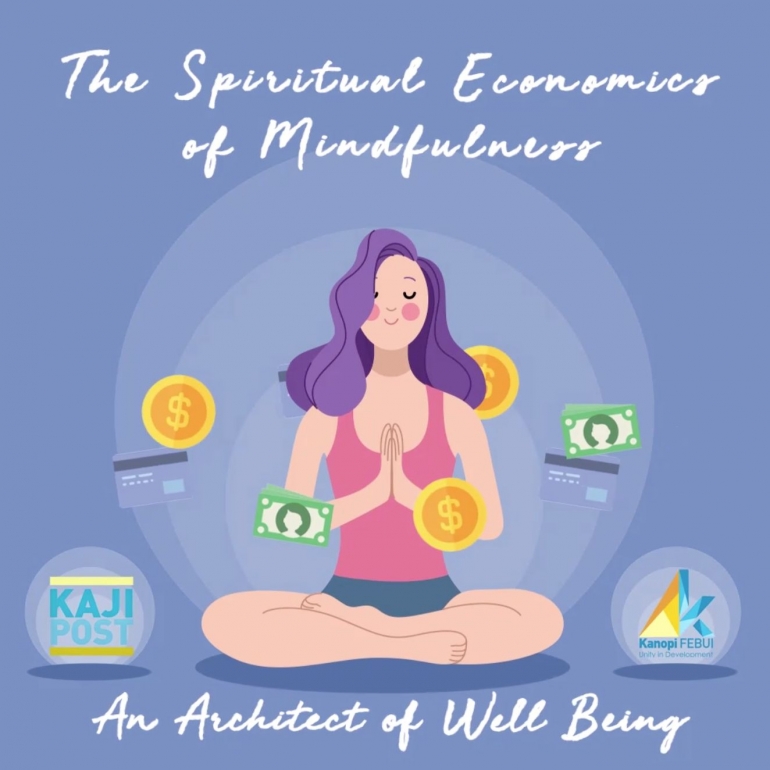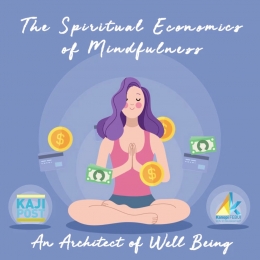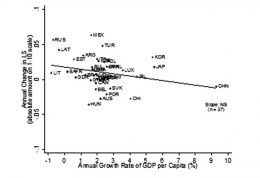Stressed, depressed, and anxious: the three words that I've, unconsciously, become used to as I grew older. I'm only 20, a university student, pretty-much 'active' in organizational activities, and already worried about my mental health. It's no wonder since we're living in the age of a highly competitive culture and being pressured by the concept of expectation and performance are no exceptions.
As I dive deeper into this matter, I've realized that I'm not alone -- lots of my friends also experience the same thing, and I've figured that it must has something to do with the way we understand ourselves. We think that we really understand ourselves by materializing the things that we perceive will make us 'better-off' and seem 'high-achieving'.
Money, popularity, you name it -- but the truth is, we won't ever reach the so-called divine point of our lives if we can't engage with ourselves rightfully by becoming more mindful. Mindfulness is simply a mental state in which one's awareness is being focused on the present moment only; not the past nor the future. People usually pursue this via an activity called 'mindfulness meditation' which has been prevalent in several countries.
Becoming mindful is essential in our lives because it can help to increase our ability in regulating the emotions and awareness that will decrease the occurrence of stress, depression, and anxiety. A study that was led by a neuroscientist and assistant of psychology at Harvard Medical School, Sara Lazar, found that mindfulness practice in the form of meditation can alter the brain's grey matter and that of memory, sense of self, and emotion control. Recently, this study is also supported by the newest research from Shapello and Desbordes emphasising on how mindfulness can tackle the problem of depression. These facts will surely come in handy since without the burden of inward mental pressures, people can be more productive in doing their daily activities.
The concept of productivity in economics is of high priority because it will determine the country's development and growth, thus its people's increased well-being. Well-being is a condition where people feel good and function well. So now, how can we relate the concept of economic well-being through the practice of mindfulness? How can we start the practice?
The (Established) Consumption Theory
Before we jump into the discussion of mindfulness, we have to understand first the condition in which we can see the urgency of doing this practice. When we study about Neoclassical Economics, we encounter the theory made by John Maynard Keynes in which he said that consumption is a function of income: when the income of a community increases, so will the consumption (although only at certain point will generate the same change due to the existence of marginal propensity to consume).
But still, the essence here is that people tend to link more income to be directly correlated with consumption because they assume it will create more happiness out of material things that can bring eternal satisfaction in their lives. But recently, this theory is being contested as more and more people deny the fact that more consumption (or having more wealth) brings more happiness -- there's no such thing as 'eternal' satisfaction brought upon by consumption since it's all the work of the illusion from our desires. Instead, people now believe that there are other forms of satisfaction that will generate more happiness than a mere consumption -- and this is where we should begin to understand the concept of mindfulness to know the aforementioned forms.
Towards Economic Well-being or (more) Capitalism?
The first form generated from being mindful is 'less is more'. This concept obviously opposes completely the consumption theory because of the reason mentioned on the previous section. By ingraining this concept in our mind, we will be able to simplify our desires rather than satisfy all of them at once. This will make a huge difference in people's lifestyle because now their main pursuit in life won't be as material as before. This concept can also be elaborated through micro, macro, and environmental economics analysis. In microeconomic, we can connect this relevancy through the concept of utility. The concept in here is standard approach from consumer behaviour to be that utility is a positive function of level of consumption, making the goal of economic activity is to achieve efficiency; maximization of the value of the production of goods and services. However, this notion is being contested since there are evidence that emphasise the importance of immaterial determinants to well-being, that's involving the practice a more coherent social relationship, awareness, learning, giving, and some quality physical activity.
After that, macroeconomic analysis also has something to say in this regard. Within the 'less is more' concept, there is a wide claim that happiness doesn't increase when income increases or we can call it as the happiness-income paradox. This finding stresses over the fact that, especially in the long term, in all countries being assessed ranging from the developed and developing ones, the relationship between the two is negative. The positive relationship that was previously stated is the product of statistical artefact or even a confusion over the long-term relationship. Other reason can also be that positive relationship only be found in the short-term relationship. This is due to the fact that people think a certain level of income must be achieved first in order to fulfill their mental satisfaction. For the long-term relationship, one of detailed conclusion about this can be seen in the form of relationship between the growth rate of GDP per capita and life satisfaction (see graph below).












